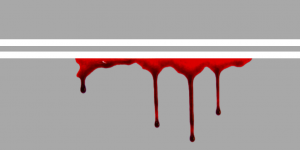In Russia, the “red lines” which define the limits to what journalists can write or say, are often referred to as the “double white lines”. Like in traffic, if media outlets cross the double white lines, they put themselves in danger and may be punished, like reported by euvsdisinfo.eu.
Novaya Gazeta vs. the trolls
Two weeks ago, we described how the independent Russian newspaper Novaya Gazeta was targeted with harassment and intimidation ahead of its publication of an investigation into a series of poison attacks and the killing of a Kremlin-critical blogger.
According to the newspaper’s sources, these attacks were carried out by a special team in the security service of Yevgeniy Prigozhin, the owner of the “troll factory”, and popularly known as “Putin’s chef”.
The lines Novaya Gazeta in this case had crossed were in other words not the government’s, but those of a privately owned organisation with close ties to the Russian authorities, and which is already known for supporting the government’s disinformation agenda with online trolling.
Slander and fake news
The punishment for Novaya Gazeta’s crossing the lines took the form of a funeral wreath with the name of the journalist behind the investigation and a severed goat’s head delivered to Novaya Gazeta’s newsroom.
The newspaper issued a statement after it received these threats and after the wave of harassment it had experienced following reporting about Russian military involvement in Syria.
The newspaper’s statement clearly identifies disinformation, trolling and harassment of journalists as parts of one cluster of problems.
Disinformation and intimidation outsourced
In Russia, the spread of disinformation is supported by instructions from the Kremlin: a narrative that trickles down through the media organisations controlled by and loyal to the authorities.
However, some of the more dirty work is carried out by private actors with close financial ties to the authorities.
As the case of Novaya Gazeta suggests, the sanctions imposed on Russian journalists that disrespect the narrative and cross “double white lines” can also be carried out by private actors.
When journalism is controlled in this way with intimidation and crackdowns, state-controlled and state-loyal disinformation has much more free play and its impact on society becomes larger.
Novaya Gazeta’s statement reminds us that the fight against disinformation is also a fight for free and independent media.



